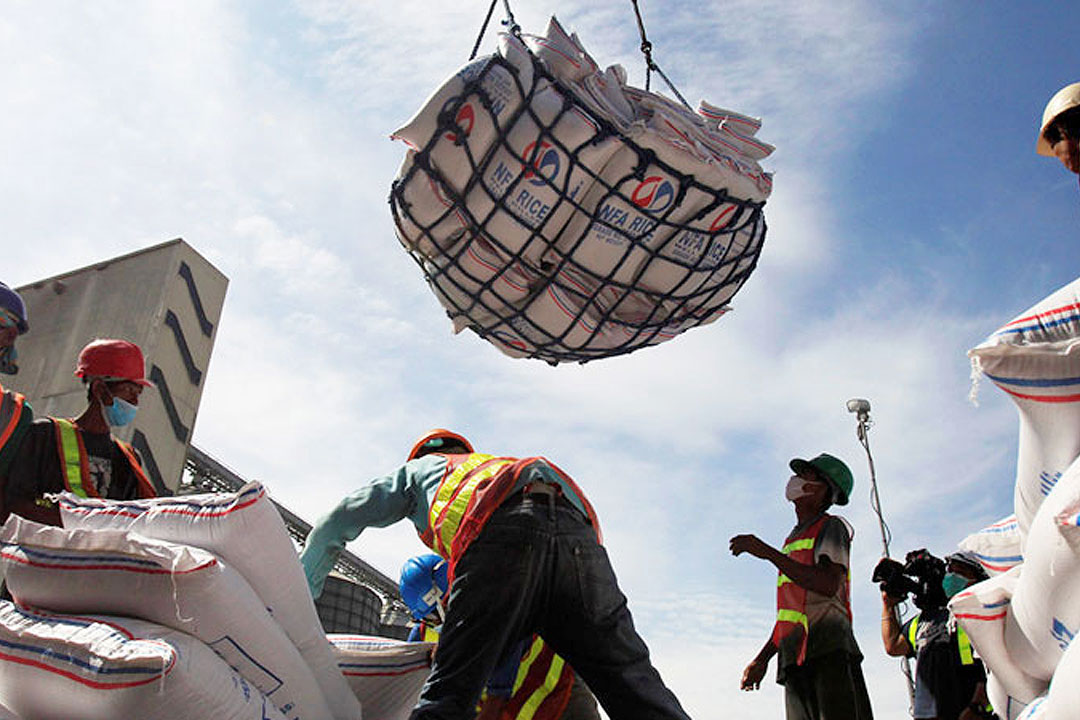PRESIDENTIAL candidate Ferdinand R. Marcos, Jr. said he is open to a suspension of Republic Act No. 11203 or the Rice Tariffication Law if he is elected in 2022.
“We should minimize our imports. I know it is easy to say but it is not very easy to do. It will take a long while. In the short term, there is still much that we have to do. I wouldn’t mind if we suspend the Rice Tariffication Law first,” Mr. Marcos said during an online forum organized by the Philippine Chamber of Agriculture and Food, Inc. Monday.
“The Rice Tariffication Law has many unintended consequences. Earlier this year, the National Food Authority (NFA) was buying at P12. The breakeven price of (a) farmer was P14, P15, P16. Why would you still plant? There is no point,” he added.
Mr. Marcos said farmers responded by not planting, which resulted in lower production, reinforcing the need to import rice.
“That is a cycle that will keep sucking us down into this importation hole until before you know it, we are not producing anything and we are importing everything. And you know, we are not in the best financial situation right now because of the pandemic and its effects on the economy,” Mr. Marcos said.
Signed by President Rodrigo R. Duterte in March 2019, the law liberalized rice imports and allowed private parties to ship in the grain in exchange for a 35% tariff for rice originating from other ASEAN countries. The government formerly held a monopoly on rice imports and paid out public funds to supplement domestic production. The Philippines has a rice self-sufficiency rate of under 90%.
The law also created the Rice Competitiveness Enhancement Fund, which seeks to increase the competitiveness of rice farmers relative to imports. It has an annual budget of P10 billion between 2019 to 2024.
Mr. Marcos said there should be an overall plan to improve the production of the agriculture sector and raise the income of farmers as local government units (LGUs) receive more funds from the National Government.
He noted that the agriculture sector will receive a boost with the upcoming implementation of the Supreme Court’s Mandanas ruling in 2022, which will give LGUs a bigger share of the National Government’s tax collections.
“We might have a good opportunity coming up with the Mandanas ruling that will give LGUs more funding to pursue the aims of the agriculture sector. But it still has to come under an overall plan,” Mr. Marcos said.
“Until we have that (overall plan), it will be difficult to achieve what we want for the agriculture sector. We have to strengthen that partnership between the LGUs and the National Government,” he added.
The Department of Agriculture has said the Rice Tariffication Law has increased production and farmers’ incomes.
“In particular, regular-milled rice is now cheaper, at P36 to P38 per kilogram (/kg), which is P2 to P8 less than in 2018; well-milled rice is also cheaper by P2 to P5; and premium and special rice are sold P1 to P6/kg less than in 2018,” Agriculture Secretary William D. Dar said. — Revin Mikhael D. Ochave
